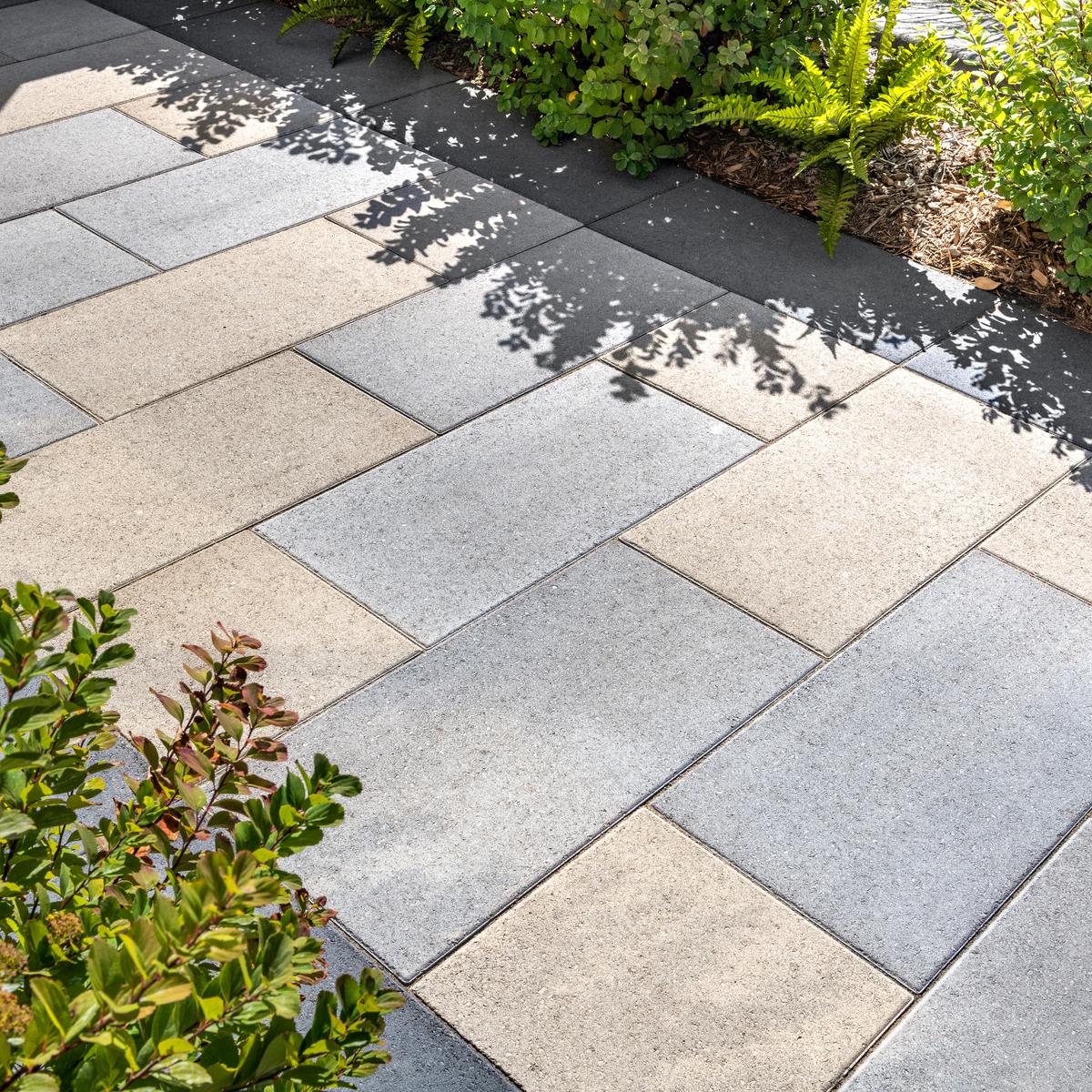Our friends at Unilock have written a fantastic article sharing the pros and cons of sealing your pavers helping you to make an informed decision about whether sealing your pavers is the right choice for your outdoor space. We’re excited to share this valuable resource with you, as it offers expert insights to help you maintain the beauty and durability of your paver installations.
While it is not a requirement to seal Unilock pavers, paver sealing is a great way to enhance the beauty and longevity of your patio, driveway, or walkway for many years. However, like any home improvement project, there are pros and cons to consider before you decide to apply a sealer to your finished paver project.
Pros:
Added Protection
A sealed product is better protected against damage caused by water, stains and fading, as well as seasonal damage from ice and snow. This ensures your pavers will continue to look fresh and new for even longer than a traditional unsealed product.
Durability
Sealing pavers can safeguard them against damage caused by freeze-thaw cycles, salt, and other environmental factors. With the application of jointing sand and a high-quality after-market sealer, you can prevent weeds and mildew from penetrating the surface, ensuring a long-lasting, attractive finish.
Easier to clean
A sealed product is typically much easier to clean than an unsealed one. To effectively clean your sealed products, a potent combination of soap and water along with a medium stiffness-bristled broom is all you needed.
Enhancing color
A sealer can help to bring out the natural color of pavers, making them more vibrant and attractive. Our NatColorEnhance Sealer, which applies specifically to our Natural Stone paver products, is designed to deliver a dampened appearance that accentuates the surface color once applied.
Cons:
Cost
Premium sealers tend to be more durable and generally more costly, while their cheaper counterparts will break down more easily. Unilock pavers are designed to look great in any outdoor space, with or without a sealer. If you wish to apply an after-market sealer, speak to a Unilock Authorized Contractor who may be able to recommend you one at a fair price.
Maintenance
Once you apply a sealant to your pavers, you will generally need to re-apply the seal every 3-5 years, if you wish to maintain their pristine appearance and protection.
Slip Hazard
High-gloss sealers can enhance the color of a concrete patio but may also increase surface slipperiness, especially when wet. To avoid potential hazards, a safer alternative is to use a matte penetrating sealer that doesn’t create a slippery surface film.
Incompatibility
Whenever you are resealing, always test a small area to make sure there are no compatibility issues between the old sealer and the sealer. A Unilock Authorized Contractor or Unilock Dealer may be able to recommend a sealer that will work best for your pavers.
Overall, sealing pavers is a great way to enhance their appearance and longevity, but it’s important to weigh the pros and cons and decide if it’s the right choice for your specific project. It’s important that you do your research to determine which sealers are most effective you for the pavers you choose.
We hope you found this article from Unilock both informative and helpful. If you’re interested in Unilock products or other landscaping, masonry, and stone products, we invite you to explore our Products page. For further assistance, please feel free to Call, Message, or Visit Us today. Our team is always ready to help you find the perfect solutions for your outdoor projects and ensure you achieve the best possible results.


